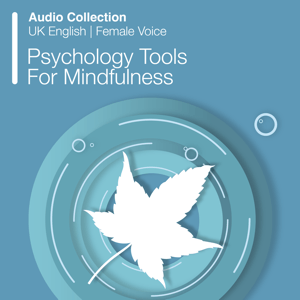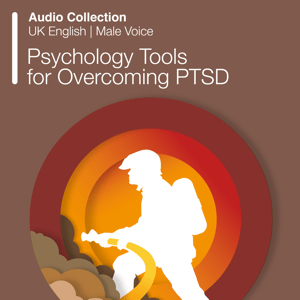Audio Collection: Psychology Tools For Developing Self-Compassion
This audio collection is designed to introduce self-compassion skills taking compassion focused therapy (CFT) approach. It offers structured exercises that help individuals cultivate self-compassion.
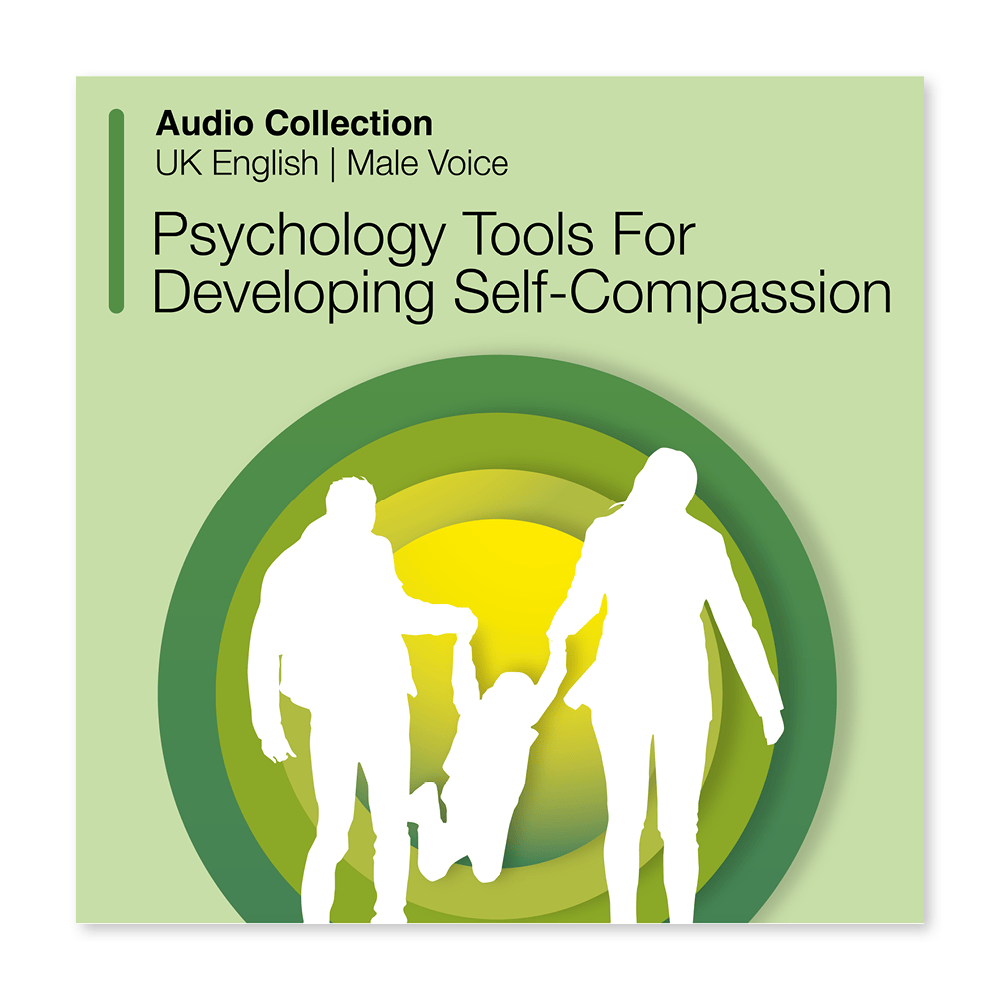
Download or send
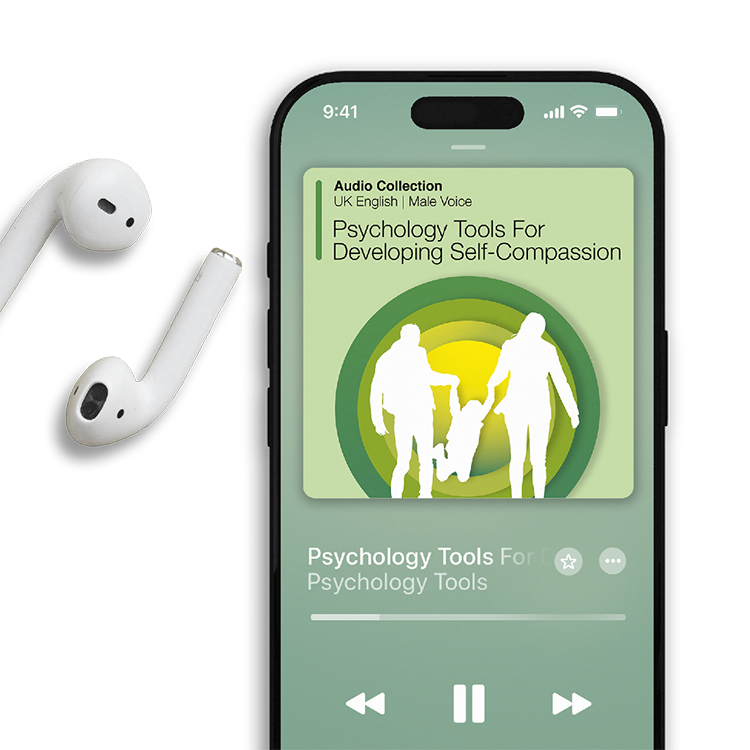
Overview
Self-compassion is a helpful skill for emotional well-being. The Psychology Tools For Developing Self-Compassion Audio Collection provides a structured approach to developing self-compassion using principles from compassion focused therapy (CFT). CFT is an evidence-based psychological approach that integrates evolutionary, cognitive, and affective neuroscience to help individuals cultivate compassion and alleviate high levels of shame and self-criticism.
This resource is designed for either independent use and integration into therapy. It consists of guided exercises divided into six sections, each addressing different aspects of self-compassion, from understanding compassion to engaging in mindfulness, imagery, and self-directed compassion practices.
Why use this resource?
This collection offers a systematic, research-backed approach to self-compassion.
- Helps individuals develop self-compassion in an experiential way.
- Works from foundational principles to more advanced practices.
- An excellent adjunct to clinical work.
- Suitable for therapists, clients, and self-guided practice.
Key benefits
Structure
Experiential
Practicality
Effectiveness
What difficulties is this for?
Transdiagnostic
Suitable for most clients irrespective of diagnostic status.
Perfectionism
Helps individuals reduce harsh self-evaluations.
Burnout And Stress
Supports emotional regulation and recovery from stress.
Low Self-Esteem
Cultivates self-acceptance and reduces self-criticism.
Depression
Supports emotional resilience and self-kindness.
Post-Traumatic Stress Disorder (PTSD)
Aids in reducing shame and self-blame.
Integrating it into your practice
Educate
Introduce the concept of self-compassion and the role of CFT.
Practice
Assign guided exercises for between-session practice.
Reflect
Discuss experiences with exercises to enhance development of self-compassion.
Maintain
Encourage ongoing practice to develop long-term self-compassion skills.
Theoretical background and therapist guidance
Compassion focused therapy (CFT) is an integrative psychological approach that helps individuals respond to distress, shame, and self-criticism by cultivating compassion for themselves and others. Drawing on insights from evolutionary psychology, affective neuroscience, and attachment theory, CFT supports the development of a more balanced emotional system by strengthening the brain’s soothing and affiliative responses. This audio collection applies CFT principles through guided experiential exercises that help individuals shift from harsh self-judgment to a more kind, grounded, and emotionally regulated way of relating to themselves and others.
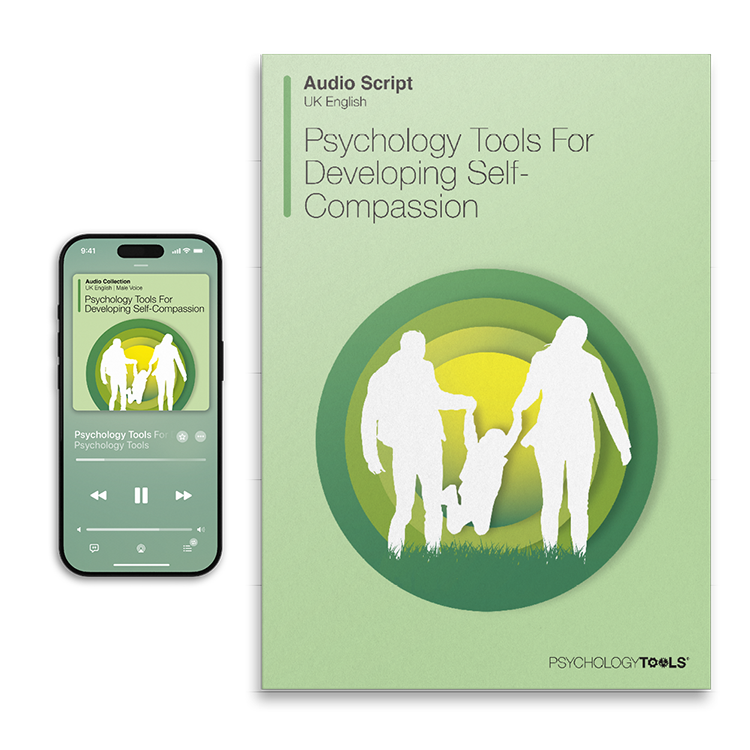
What's inside
- An introduction to compassion focused therapy and the science of compassion.
- Attention and mindfulness exercises.
- Practices for activating the soothing system.
- Imagery and memory-based exercises for cultivating compassion.
- Exercises for developing a compassionate mindset and identity.
- Directing compassion towards self and others.
FAQs
How this resource helps improve clinical outcomes
Clinicians and clients using this resource can expect:
- Exercises specifically target self-attacking thoughts and promote self-compassion.
- Strengthens the ability to manage distress with self-soothing strategies.
- Helps clients respond to challenges with greater self-compassion.
- Encourages lasting change through structured practice and integration into daily life.
Clinicians who use this resource also use
References and further reading
- Gilbert, P. (2014). The origins and nature of compassion focused therapy. British Journal of Clinical Psychology, 53(1), 6–41. https://doi.org/10.1111/bjc.12043
- Gilbert, P. (2020). Compassion: From its evolution to a psychotherapy. Frontiers in Psychology, 11, Article 586161. https://doi.org/10.3389/fpsyg.2020.586161
- Irons, C., & Beaumont, E. (2017). The compassionate mind workbook: A step-by-step guide to developing your compassionate self. Robinson.
- Irons, C., & Heriot‐Maitland, C. (2021). Compassionate mind training: An 8‐week group for the general public. Psychology and Psychotherapy: Theory, Research and Practice, 94(3), 443–463. https://doi.org/10.1111/papt.12315
- Leboeuf, I., Andreotti, E., Irons, C., Beaumont, E., & Antoine, P. (2022). A randomized controlled study of a French compassionate mind training. Mindfulness, 13(11), 2891–2903. https://doi.org/10.1007/s12671-022-01974-2
- Savari, Y., Mohagheghi, H., & Petrocchi, N. (2021). A preliminary investigation on the effectiveness of compassionate mind training for students with major depressive disorder: A randomized controlled trial. Mindfulness, 12(5), 1159–1172. https://doi.org/10.1007/s12671-021-01582-6
Just enter your name and email address, and we'll send you Audio Collection: Psychology Tools For Developing Self-Compassion (English GB) straight to your inbox. You'll also receive occasional product update emails wth evidence-based tools, clinical resources, and the latest psychological research.
Product
Company
Support
- © 2026 Psychology Tools. All rights reserved
- Terms & Conditions
- Privacy Policy
- Cookies Policy
- Disclaimer
Working...
We value your privacy
This site uses strictly necessary cookies to function. We do not use cookies for analytics, marketing, or tracking purposes. By clicking “OK”, you agree to the use of these essential cookies. Read our Cookie Policy
